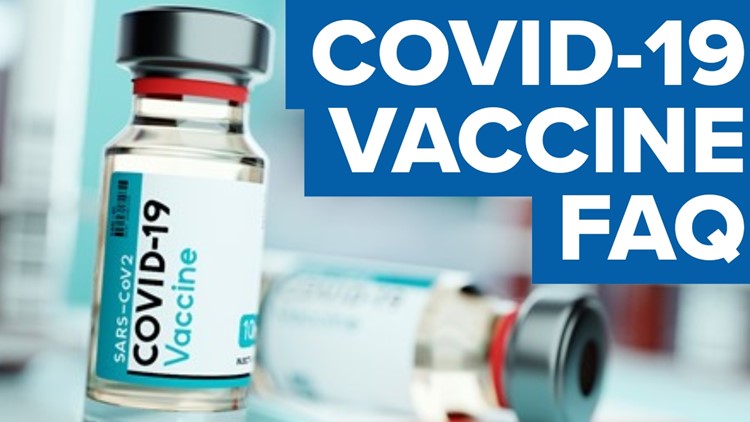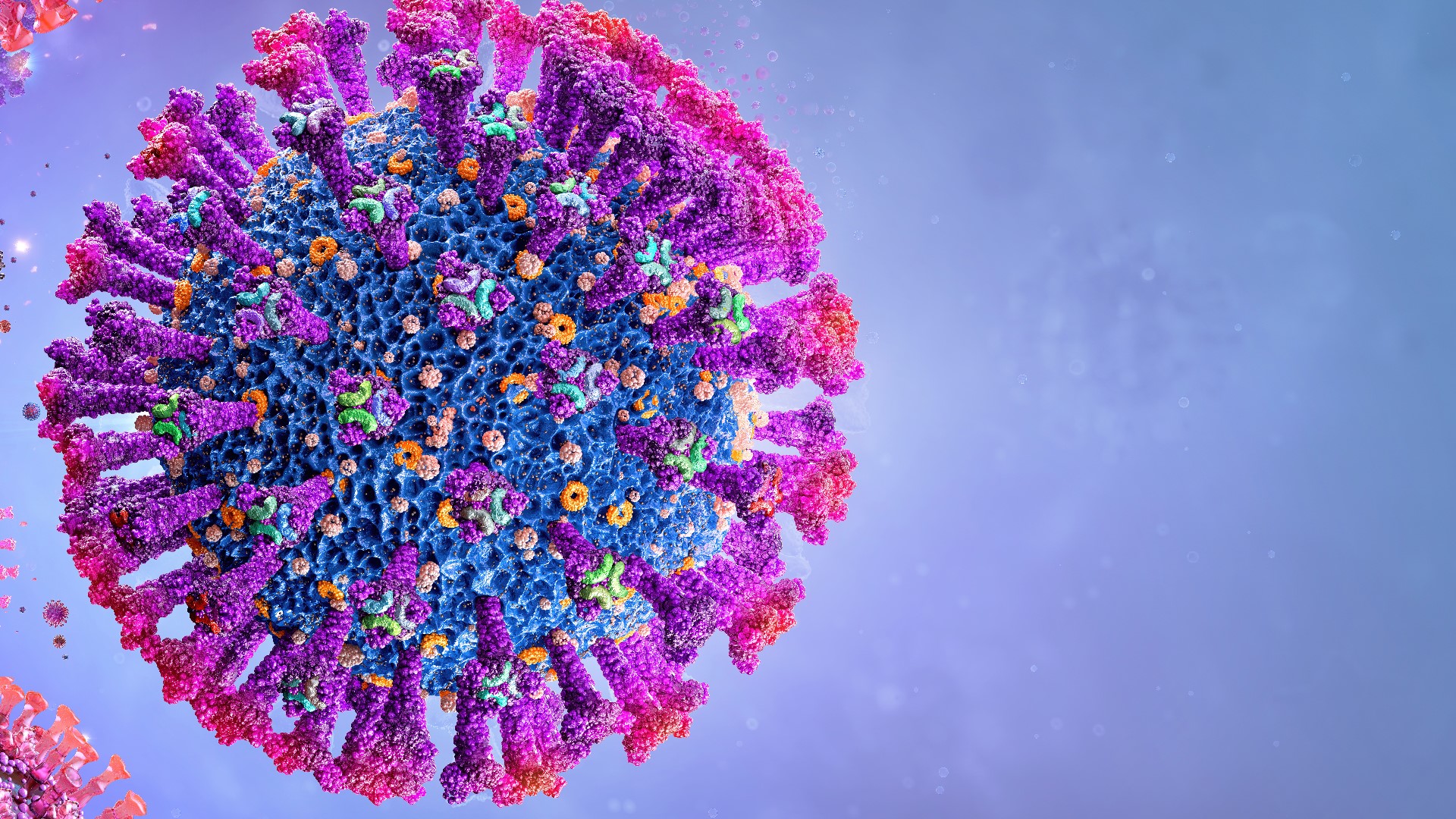CALIFORNIA, USA — As concerns about the coronavirus and its vaccine have grown, so have the number of questions surrounding its efficacy. And new information about the coronavirus and its spread continues to be found out by health experts.
We've put together many of the questions asked by ABC10 viewers, specifically about COVID-19 and the vaccine. And if you don't see your question in there, you can submit yours by texting the ABC10 Vaccine Team at (916)321-3310.
What vaccine phase or tier are we in?
As of Thursday, March 18, California is still in Phase 1B. This means the state is vaccinating health care workers and residents of long term care homes with about 3 million people are in this group. California is also vaccinating individuals 65 and older and workers in agriculture and food, education and childcare and emergency services.
On March 15, vaccine eligibility also opened up to about 4.4 million people who are considered at higher risk for serious COVID-19 illness. This includes those with certain significant, high-risk medical conditions, disabilities, illness, living spaces, or work environments.
When and where can I get the vaccine?
Each county has its own requirements for eligibility, where you can get the vaccine, how to sign up, and when you can receive it. Check out ABC10's county-by-county guide for when and where to get a vaccination.
Can the current vaccines prevent a new variant of coronavirus?
Viruses constantly mutate as they spread, and most changes aren't significant. First-generation COVID-19 vaccines appear to be working against today's variants, but makers already are taking steps to update their recipes if health authorities decide that's needed.
COVID-19 vaccines by Pfizer and Moderna are made with new technology that's easy to update. The so-called mRNA vaccines use a piece of genetic code for the spike protein that coats the coronavirus, so your immune system can learn to recognize and fight the real thing.
According to Dr. Kawsar Talaat, an infectious disease expert and vaccine researcher at Johns Hopkins, there’s little risk in “waiting too long” because the first dose of the vaccine causes the body to start building immunity.
The Centers for Disease Control and Prevention recommends that the second dose of vaccines be administered within three weeks to one month, but stated that “there is no maximum interval between the first and second doses for either vaccine."
The first dose and second dose of your Pfizer or Moderna COVID-19 vaccine should be the same, both chemically and from a dosage standpoint.
Why is the Johnson & Johnson vaccine sometimes called “Janssen Covid-19 Vaccine?" What is Janssen?
Janssen is a pharmaceutical company of Johnson & Johnson. The Janssen vaccine and the Johnson & Johnson vaccine are the same.
Can I choose which vaccine I get?
The state’s vaccine page says, “It depends. Check with your health care provider about which vaccine they have available.”
The CDC recommends waiting up to 90 days before getting the coronavirus vaccine after having the coronavirus and receiving antibody treatments.
"If you were treated for COVID-19 symptoms with monoclonal antibodies or convalescent plasma, you should wait 90 days before getting a COVID-19 vaccine," a spokesperson from the CDC said.
People who had the coronavirus and were not treated with antibody treatments should wait until their doctor-recommended isolation period is over before getting the vaccine the CDC said.
Cal Expo in Sacramento is a vaccination site. Should I go there now?
No, don't rush to Cal Expo. As of Monday, January 11, the facility is being used to vaccinate a limited number of health workers by invitation only but not the general public.
To find out more information about when you can schedule an appointment to get a vaccine or schedule a COVID-19 test go to the Sacramento County website or call 916-875-2400.
Experts say it may be too soon to tell what could definitely happen if you skip the second dose. Health officials said the vaccine might be less effective or last a shorter period of time if you skip the second dose.
If I take both COVID vaccine doses for either Moderna or Pfizer, how long will I be protected?
Studies have shown that the antibodies after COVID-19 vaccination will last for three months, but the upper limit is unknown because these vaccines have only been administered for a few months.
ABC10 medical expert and Roseville Physician Dr. Tom Hopkins says the upcoming COVID-19 vaccines are "projected at this point to serve as a seasonal vaccine as we don't know how individuals will respond to it with long-term versus short-term immunity."
When you have received your second vaccine what is safe to do?
According to the CDC, “After you are fully vaccinated for COVID-19, you may be able to start doing some things that you had stopped doing because of the pandemic.” Though the CDC says you should still continue to socially distance and wear your mask around those who are not vaccinated.
This depends on how many people get vaccinated. George Rutherford, a professor of epidemiology at the University of San Francisco, said the goal is to get at least 60% to 70% of the population vaccinated to have life return to normal.
The first in line are front line healthcare workers and elderly residents living in nursing and assisted living facilities, according to the California Department of Health's allocation guidelines for the COVID-19 vaccine.
The Vaccine Tool Calculator created by Surgo Ventures and Ariadne Labs helps states estimate priority populations based on the vaccine supply.
Is there a waitlist I can sign up for?
Californians can officially make appointments through MyTurn or find out when it’s their turn to get a vaccine. You can sign up at myturn.ca.gov or call (833) 422-4255.
It’s up to you and your doctor to make that decision. The American College of Obstetricians and Gynecologists said vaccination should not be withheld from pregnant women who otherwise would qualify.
Yes, fetal cell lines were used to manufacture and develop the Johnson and Johnson COVID-19 vaccine.
Infectious disease expert Dr. Anthony Fauci says it is necessary to get the vaccine because it isn’t certain how long natural immunity from the virus lasts. The CDC adds that early evidence suggests natural immunity from those who’ve had the virus may not last long. The agency also adds that immunity can vary from person to person.
According to Dr. David Diemert, a vaccines expert from George Washington University, in the same way, we don’t know if the vaccines stop the virus from coming into your body; we also don’t know about it leaving a vaccinated body.
“It doesn’t necessarily mean it wouldn’t stop someone from transmitting it to someone else,” he said.
The latest update from the American Association of Blood Banks and FDA states that people who receive a vaccine can still donate blood but not plasma.
Yes, employers can require vaccinations. For example, the University of California already has a mandatory vaccination policy for the flu vaccine for everybody who will be accessing one of its campuses. Employers have a general duty to provide a safe workplace and to mitigate all health and safety hazards. However, the employer must provide reasonable accommodations for religious reasons, disability, or medical condition.
According to ABC10's medical expert Dr. Payal Kohli, we don’t yet know whether the vaccine protects the individual getting the vaccine or protects those around them.
While the Pfizer vaccine has been approved for emergency use in the U.S., and the Moderna vaccine is on track for the same authorization, it will likely be a long wait for people under 18 years old.
Dr. Fauci recently announced that once vaccines hit the market, they will not initially be available to children because few children have participated in clinical trials for the vaccine.
Studies have shown that the antibodies after COVID-19 vaccination will last for three months, but the upper limit is unknown because these vaccines have only been administered for a few months.
ABC10 medical expert and Roseville Physician Dr. Tom Hopkins says the upcoming COVID-19 vaccines are "projected at this point to serve as a seasonal vaccine as we don't know how individuals will respond to it with long-term versus short-term immunity."
The Centers for Disease Control and Prevention suggested sticking to one coronavirus vaccine.
It’s unlikely that taking multiple vaccines will cause health issues, but it’s also unlikely that it will provide benefits.
Dr. Payal Kohli, an ABC10 health expert, said there is no live virus in the vaccine, so a person cannot get sick from taking the vaccine. Still, their immune system will be working hard, making antibodies, and learning to defend against the virus so that they might feel some of the usual immune response symptoms like fatigue, headaches, and muscle aches.





















